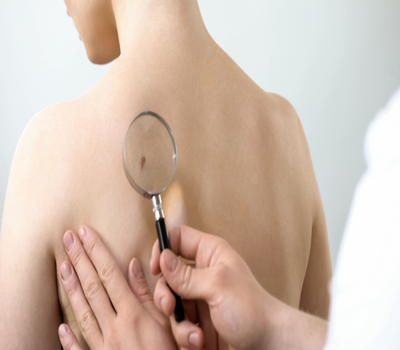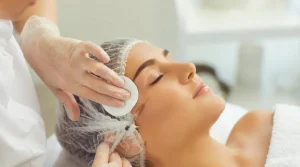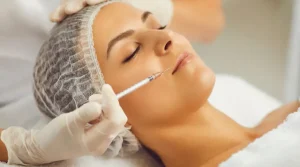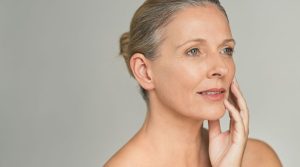Key Takeaways:
- Year-Round Risk: Skin cancer risk persists throughout the year, even in colder climates like Bergen County, NJ, making prevention a year-round priority.
- Annual Screenings: Regular dermatological exams are crucial for early detection and treatment, significantly improving outcomes for skin cancer patients.
- Beyond Sunscreen: Effective prevention involves multiple strategies, including wearing protective clothing, seeking shade, checking the UV index, and conducting regular self-exams.
- Healthy Lifestyle: A balanced diet rich in antioxidants, quitting smoking, and limiting alcohol consumption contribute to better skin health and lower cancer risk.
- Public Awareness: Skin cancer remains the most common cancer in the U.S. Stay
Skin cancer is the most common form of cancer in the United States, affecting millions each year. Often associated with summer months and hot, sunny days, the reality is that skin cancer prevention is not limited to a particular season—it’s a year-round priority, even in cooler climates like Bergen County, New Jersey. Annual skin cancer screenings and comprehensive prevention strategies are crucial to protecting your health all year. This blog will explore the importance of screening, preventive care beyond sunscreen, and practical tips to reduce skin cancer risk.
Understanding Skin Cancer
Skin cancer occurs when abnormal cells in the skin grow uncontrollably, and there are several types, each with its risk factors and implications for treatment.
Types of Skin Cancer:
1. Basal Cell Carcinoma (BCC):
This is the most common form of skin cancer, often appearing as a small, shiny bump or growth. It rarely spreads but can cause significant damage to surrounding tissue if untreated.
2. Squamous Cell Carcinoma (SCC):
Second in prevalence, SCC is often found in areas exposed to the sun, such as the face, ears, and hands. It can appear as a red, scaly patch or a sore that doesn’t heal.
3. Melanoma:
While less common, melanoma is the most dangerous form of skin cancer. It develops in melanocytes, which produce pigment and can spread to other body parts if not caught early. Melanoma often presents as an unusual mole with irregular borders or color.
Risk Factors:
While anyone can develop skin cancer, certain factors increase your risk, including:
- Excessive sun exposure: Repeated sunburns, especially in childhood, and ongoing exposure to UV rays can increase your risk.
- Fair skin: Individuals with lighter skin tones, blond or red hair, and light-colored eyes are more susceptible to skin damage from UV rays.
- Family history: A family history of skin cancer raises your risk.
- Weakened immune system: Certain medical conditions or treatments that suppress your immune system can elevate your risk.
- Indoor tanning: Using tanning beds or other artificial UV light sources significantly increases the likelihood of developing skin cancer, especially in younger individuals.
The Importance of Annual Skin Cancer Screenings
Annual skin cancer screenings by a dermatologist are critical to early detection and prevention. Even though personal vigilance is essential, a professional skin exam can catch abnormalities that might go unnoticed.
Early Detection Saves Lives
The key to successfully treating skin cancer is catching it early. When detected in its early stages, skin cancer is highly treatable, and the prognosis is often excellent. Regular screenings can help identify precancerous lesions or cancerous spots before they spread.
Who Should Get Screened?
While everyone should consider annual skin cancer screenings, those at higher risk—including individuals with a personal or family history of skin cancer, frequent sun exposure, or numerous moles—should make screenings a priority. If you notice changes in your skin, such as a new growth or changes to an existing mole, don’t wait for your annual exam. Early intervention is essential.
Peace of Mind
Beyond medical reasons, annual screenings provide peace of mind. You know that a trained professional monitors your skin’s health lets you be proactive about your well-being.
Beyond Sunscreen: Comprehensive Skin Cancer Prevention Strategies
While sunscreen is a foundational sun protection element, effective skin cancer prevention involves more than slathering on SPF.
1. Sun Protection Tips
- a. Seek Shade
Avoid direct sunlight during peak UV radiation hours, typically from 10 AM to 4 PM. Opt for shaded areas or an umbrella, particularly during midday if you’re outdoors.
- b. Wear Protective Clothing
Clothing provides an extra barrier against harmful UV rays. Choose long-sleeved shirts, pants, wide-brimmed hats, and sunglasses that block UV radiation. Look for UPF-rated clothing for protection, especially if you spend long hours outside.
- c. Check the UV Index
The UV Index measures the strength of ultraviolet radiation on a given day. You can access daily UV reports online or via weather apps to gauge the risk and adjust your sun protection accordingly. Even on cloudy days, up to 80% of UV rays can penetrate the clouds, making it vital to be mindful of sun exposure year-round.
2. Regular Self-Exams
Performing regular self-examinations is one of the most effective ways to spot skin cancer early. The American Academy of Dermatology recommends using the ABCDE method to examine moles and skin lesions:
- Asymmetry: One half of the mole looks different from the other.
- Borders: The edges are irregular, scalloped, or poorly defined.
- Color: The mole has multiple colors, including shades of tan, brown, black, or even white, red, or blue.
- Diameter: Melanomas are usually more significant than a pencil eraser but can be smaller.
- Evolving: The mole changes in size, shape, or color over time.
Take note of any changes in size, color, or texture, and consult your dermatologist if you see anything suspicious. Early action is essential for optimal outcomes.
3. A Healthy Lifestyle Supports Skin Health
A balanced lifestyle promotes not just general health but skin health, too.
- a. Nutrient-Rich Diet
A diet rich in antioxidants—such as fruits and vegetables—helps protect skin from free radicals, which can damage skin cells and contribute to cancer formation. Nutrients like vitamins C and E support healthy skin and reduce oxidative stress.
- b. Limit Alcohol and Quit Smoking
Excessive alcohol consumption and smoking can increase the likelihood of developing skin cancer. Alcohol weakens the immune system and impairs the body’s ability to repair UV damage, while smoking reduces blood flow to the skin, which can contribute to skin damage and cancer risk.
Statistics on Skin Cancer in Bergen County, NJ
In Bergen County, NJ, like many regions across the U.S., skin cancer is a growing concern. According to the American Cancer Society, skin cancer is the most diagnosed cancer in the United States, with one in five Americans expected to develop the disease by age 70. In New Jersey alone, there are thousands of new cases each year.
The New Jersey Department of Health reports a steady rise in skin cancer cases over the last decade. With a relatively high prevalence of outdoor activities and proximity to coastal areas, Bergen County residents should be particularly vigilant in their preventive efforts.
Trust Your Beauty to Experienced & Skilled Professionals
At Bergen County Medical Aesthetics, you’re in the expert hands of Roel Galope, DO, a highly experienced and skilled professional dedicated to delivering exceptional results. Whether it’s Sculptra, PDO Thread Lifts, or other aesthetic treatments, Dr. Galope ensures personalized care for beautiful, natural-looking outcomes. Call Now to Book a Consultation:
FAQs on Skin Cancer Prevention
1. How often should I apply sunscreen?
Sunscreen should be applied outdoors and more frequently every two hours if you are swimming or sweating. Be sure to use a broad-spectrum SPF of at least 30 to protect against UVA and UVB rays.
2. Do I need to wear sunscreen during winter or on cloudy days?
Yes. UV rays can penetrate clouds, and snow can reflect UV rays, increasing your exposure. Applying sunscreen year-round is a crucial aspect of skin cancer prevention.
3. What’s the difference between UVA and UVB rays?
UVA rays penetrate deeper into the skin and contribute to premature aging and wrinkles, while UVB rays are primarily responsible for sunburns. Both types of rays can contribute to developing skin cancer, so broad-spectrum sunscreen is essential.
4. Are tanning beds safer than natural sunlight?
No. Tanning beds are not safer than the sun. The use of tanning beds increases your risk of melanoma, particularly in younger individuals. It’s best to avoid them altogether.
5. Can diet reduce my risk of skin cancer?
While no diet can eliminate the risk of skin cancer, a healthy, antioxidant-rich diet can support skin health and boost your immune system’s ability to repair skin damage from the sun.
6. When should I schedule my annual skin cancer screening?
It’s best to schedule your screening during a time of year when you have minimal sun exposure. Many people choose early spring or late fall for screenings, but your dermatologist can help you determine the best time based on your skin type and lifestyle.
7. How do I know if a mole is dangerous?
Use the ABCDE method (Asymmetry, Borders, Color, Diameter, and Evolving) to monitor your moles. If you notice any changes or something unusual, consult your dermatologist for a professional evaluation.
Conclusion
Skin cancer prevention is a year-round responsibility, not just something to consider during summer. You can significantly reduce your risk of developing skin cancer by prioritizing annual skin cancer screenings, adopting comprehensive sun protection strategies, performing regular self-exams, and embracing a healthy lifestyle.
Don’t wait until it’s too late—schedule your annual skin cancer screening today to ensure your skin stays healthy and cancer-free. Whether you’re enjoying the outdoors in Bergen County or just going about your daily routine, make skin cancer prevention a top priority.





